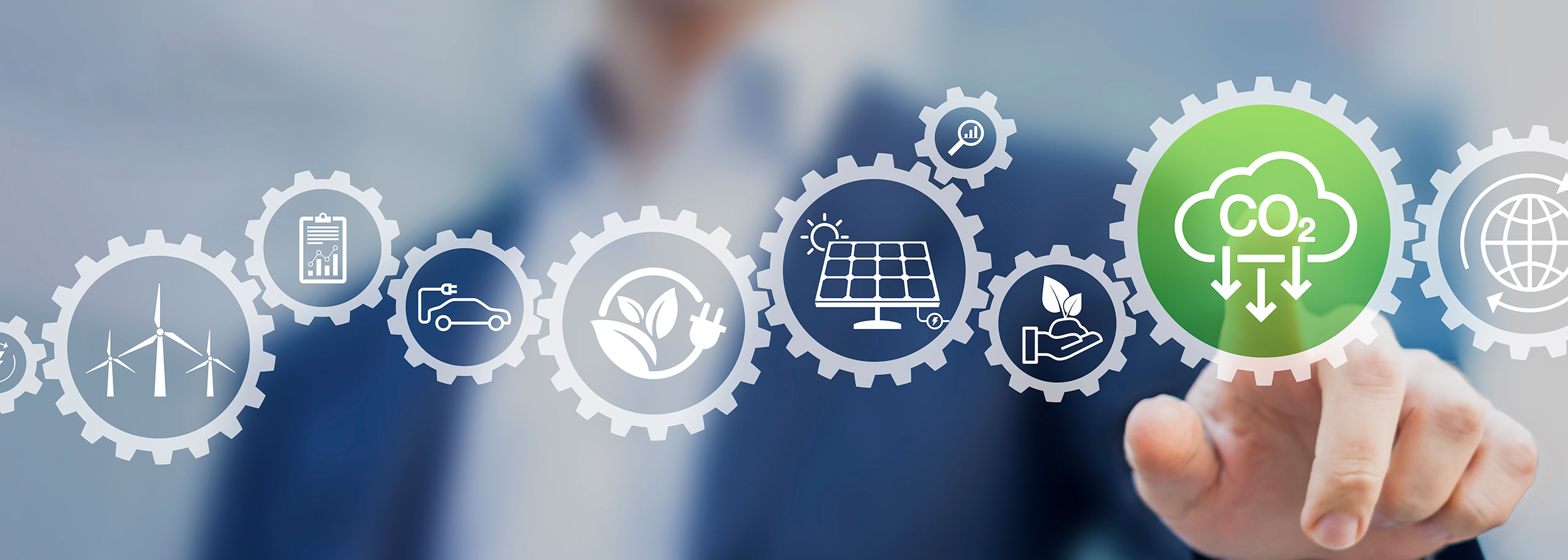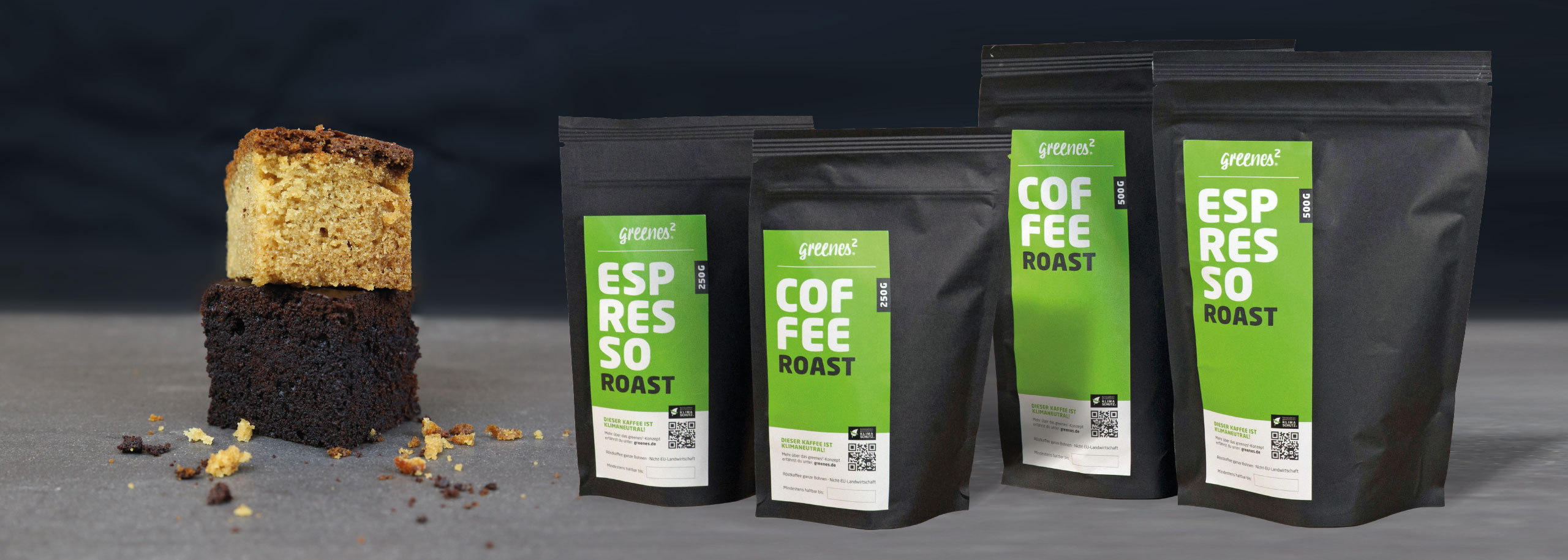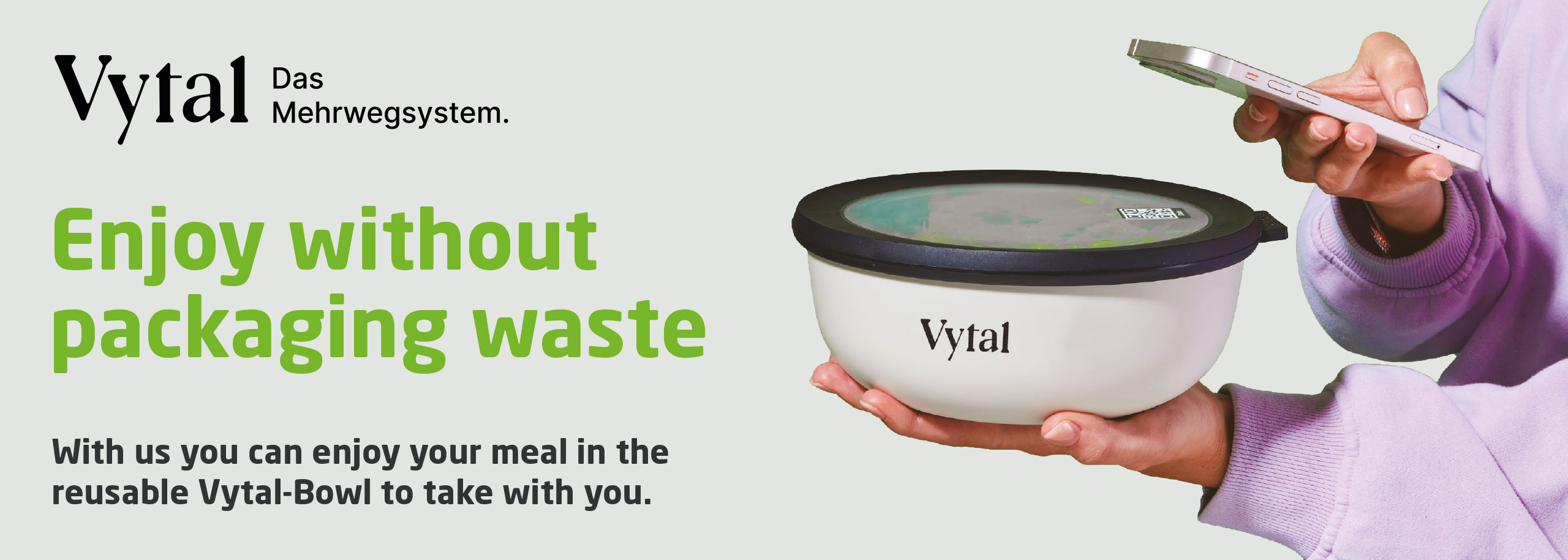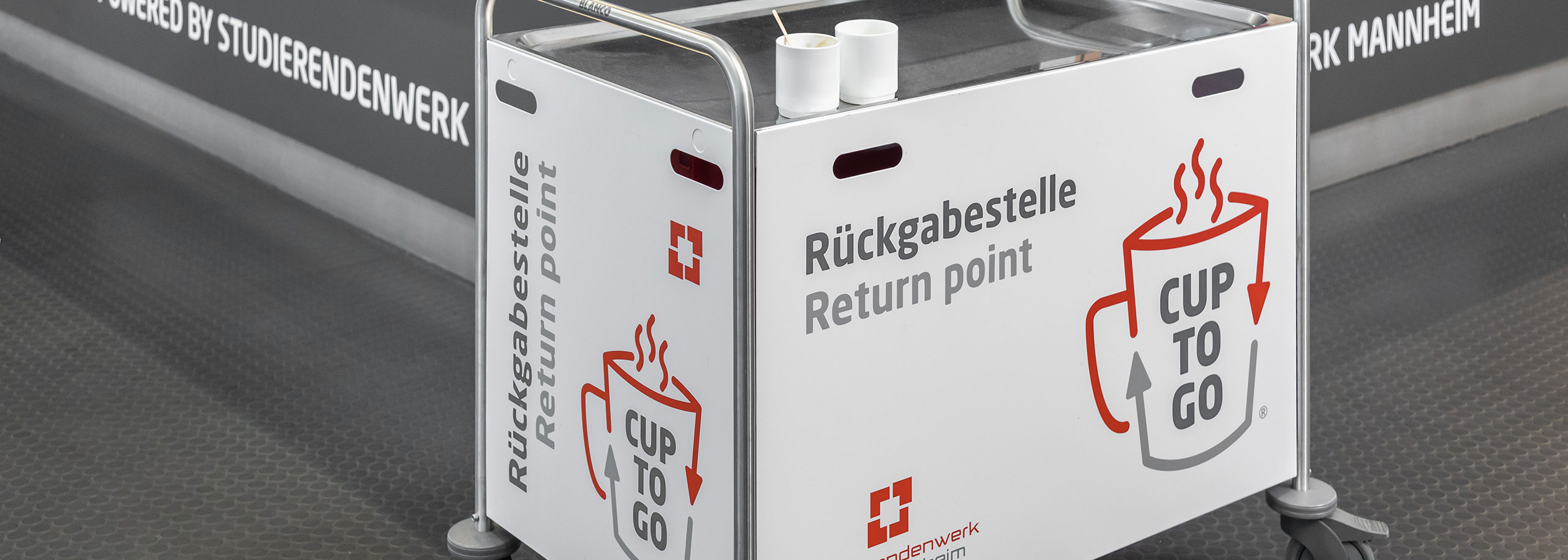
Sustainability
Studierendenwerk Mannheim has set itself the goal of reducing its ecological footprint sustainably and effectively. Since 2019, we have been recording the greenhouse gas emissions for which we are responsible in our corporate carbon footprints every year. The emission hotspots identified in this process provide a sound basis for a prioritised ecological optimisation concept. In addition, we have been conducting product carbon footprints for the core products of our “greenes²®” catering concept since 2021.
Corporate carbon footprint
Our climate strategy is based on the realisation that the effects of climate change are directly attributable to the amount of greenhouse gases released into the earth’s atmosphere. In order to determine our company’s greenhouse gas emissions holistically and in accordance with international standards, we analyse all relevant emission sources. This enables us to precisely identify and effectively reduce the main emissions for which we are responsible. When selecting the emission sources to be recognised in our corporate carbon footprint, we strictly adhere to the basic requirements of the Greenhouse Gas Protocol’s Corporate Accounting and Reporting Standard. This standard, developed by the World Business Council for Sustainable Development and the World Resources Institute, guarantees reproducible and transparent ecological accounting. It enables comparisons to be made over several financial years and with other companies:
The total emissions of our corporate carbon footprint for 2023 amount to 22,735.34 t CO2e, distributed across Scope 1, 2 and 3.
Product carbon footprints for greenes²® products

As part of the “greenes²® – mindful campus food” catering concept, we have the greenhouse gas emissions of our core products recorded in annual product carbon footprints. The recording refers to the greenhouse gas emissions over the entire life cycle of the products under consideration. Our Coffee Roast and Espresso Roast were the starting point for the product range with PCFs from greenes²® in 2021. The individual steps in the life cycle of the four products were analysed in a comprehensive process. The product-specific emission hotspots for the two coffees were optimised thanks to the avoidance of mineral fertilisers during coffee cultivation, the use of electricity from renewable energy generation during preparation and the avoidance of disposable cups. We are proud that the values for both coffees are well below the market average. The product-specific emission hotspots of the blondies and brownies were reduced by avoiding animal products, using green electricity during preparation and making considerable use of regional ingredients.
The product carbon footprints enabled us to gain interesting insights into where the levers for reducing emissions lie in the product area. They also provide us with helpful criteria for selecting future suppliers.
The exact emission values of all products can be found at:
www.greenvisionsolutions.de/greenes
Introduction of the "Vytal" reusable system

In January 2023, the deposit-free and sustainable Vytal system was introduced in the Studierendenwerk’s catering facilities in accordance with the legal requirements for reusable packaging. If required, guests can now simply take their food with them without packaging waste and return it at the checkouts.
Cup to go®

Sustainable concept for canteens and cafeterias without disposable cups
Cup to Go® is an innovative sustainability concept that is based on user behaviour and thus intuitively replaces the use of disposable cups. The core element of the solution is the complete switch to reusable containers in the catering facilities operated by the Studierendenwerk at the University of Mannheim and Mannheim University of Applied Sciences. This is associated with environmentally friendly ease of use, as the cup filled with the desired hot drink can be taken along and conveniently returned to several return points after use.
The project development was preceded by a well-founded scientific analysis, which demonstrated an improvement in the ecological balance. As a result, the abolition of disposable cups and the switch to the Cup to Go® reusable system at Mannheim University of Applied Sciences can save 800 kg of CO2, 2,700 litres of water and 360 m²/a of natural space during a semester; at the University of Mannheim, savings of three times this amount can even be expected.
The current climate debate with increased ecological demands for sustainable consumption has long been a concern of the Studierendenwerk Mannheim. Among other things, this also concerns the flood of waste from disposable cups. In Germany, around 2.8 billion of these cups are thrown away every year, which equates to 40,000 tonnes of waste. Due to the plastic content in the cup, this waste has to be incinerated as residual waste. Tackling this challenge with Cup to Go® motivated Studierendenwerk Mannheim to apply for the City of Mannheim’s 2020 Environmental Award with its sustainability project. The focus of this year’s environmental award is the avoidance of plastic.
However, there are other reasons why it makes sense to banish disposable cups from coffee kitchens for good. For example, the raw materials required to manufacture disposable cups: 43,000 trees, 1.5 billion litres of water and 3,000 tonnes of crude oil are needed to produce the 2.8 billion cups, which also cause CO2 emissions of 111,000 tonnes per year.



